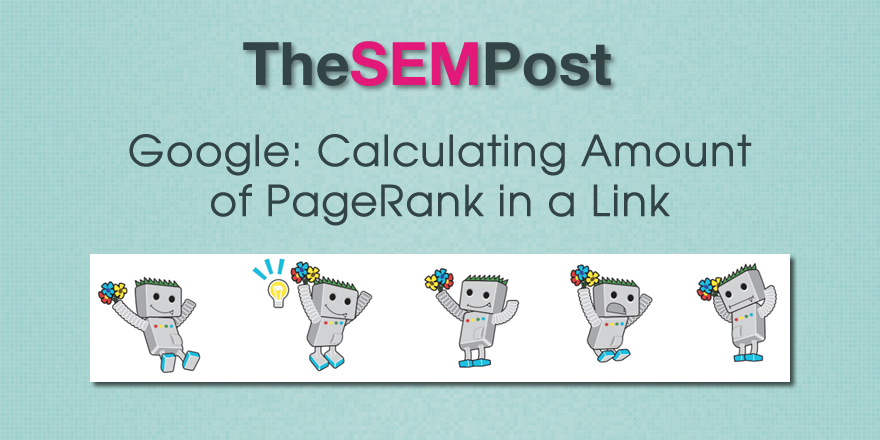
First off, Mueller doesn’t reveal any secret sauce for exactly how much PageRank might flow though a link. If you want to get something much more detailed, you can read the original paper, or related Wikipedia page. The caveat is that it is almost certain it has evolved since publication.
But Mueller does make some interesting comments about it.
All right, so now we have the simple question of, what signals does Google’s algorithm look into to calculate the amount of page rank passed through a link? For that, I don’t really have an absolute answer. So we do look for the realm of… although to say we are not going to pass any signals through a link.
This seems to be Mueller referring to things webmasters can do to stop PageRank flow, such as the nofollow tag.
But otherwise, it’s something where we take into account a lot of things.
He doesn’t confirm what is in “a lot of things” but it is clearly not just the links themselves as some SEOs still believe. After all, not all links are created equal because the quality of a link can vary dramatically. There are plenty of nuances as well that do or could possibly play a role such as location of the links on the page, the quality of the page, the incoming links (internal and external) to the page linking out, etc.
And it’s not something where I think it wouldn’t make sense for a normal site to try to calculate how the page rank flows within a website, because there’s just so many ways that links can go into a site, and how URLs can be folded together and duplicated, and where crawling goes off into dead ends and things like that. So that seems like something that’s not really a good use of time.
So Mueller is confirming that PageRank can be affected with how Google is folding together duplicated pages on their end, not just from the webmaster side. We do know that site owners can attempt to funnel PageRank through the use of canonicals and redirects. But Google also does something similar on their end when crawling, indexing then ranking pages, when pages are identical or near-identical for both the same site and for multiple sites where many individual sites have the same or near-identical content. This is why you sometimes see the duplicate content warning at the end of search results when doing some searches, because Google combines them. And this does seem to be a confirmation of it affecting PageRank.
Mueller does say that site owners could use their time better than trying to figure out the nuances that are affecting the PageRank flow on their sites, although this likely won’t stop many of them. And many SEOs do recommend using techniques to flow PageRank in a way that would help other pages both on the site and off, as well as just for crawling issues to use PageRank flow to try and show Google the most important pages on a site.
So while Google doesn’t give us the secret sauce, it is a bit of interesting insight in PageRank and how it is calculated.
Jennifer Slegg
Latest posts by Jennifer Slegg (see all)
- 2022 Update for Google Quality Rater Guidelines – Big YMYL Updates - August 1, 2022
- Google Quality Rater Guidelines: The Low Quality 2021 Update - October 19, 2021
- Rethinking Affiliate Sites With Google’s Product Review Update - April 23, 2021
- New Google Quality Rater Guidelines, Update Adds Emphasis on Needs Met - October 16, 2020
- Google Updates Experiment Statistics for Quality Raters - October 6, 2020
